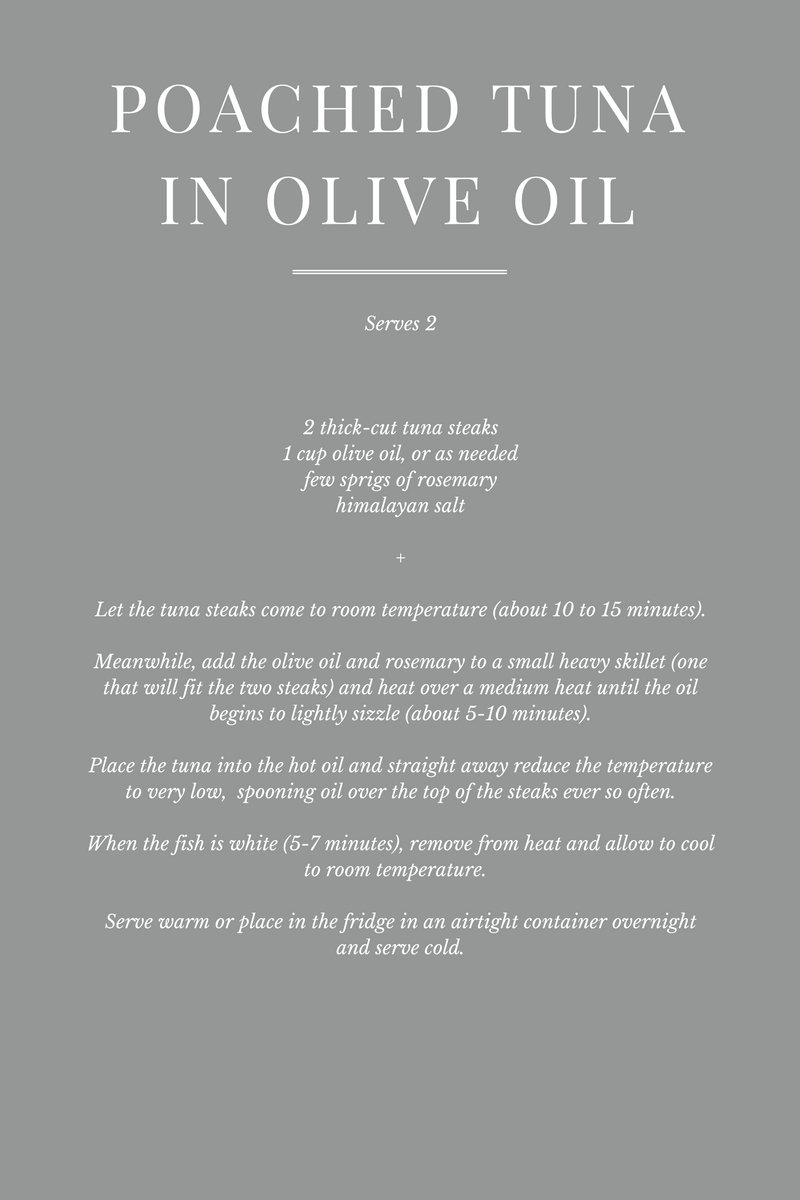Vitamin A + Poached Tuna
Growing up as a teenager in the 80’s, I fully embraced the ruffle skirt, the Breakfast Club and basically anything with Rob Lowe in it.
Unfortunately, I also embraced the “low-fat” diet epidemic.
Based on what I was taught at home and at school, I truly believed (like many) that fat was the enemy.
Changing this deeply ingrained mindset took A LOT of effort, and even though I understood and agreed with the science behind why eating fat is so good for our bodies, I really did struggle to physically eat fat, and it took almost a solid year of transitioning before my brain fully embraced this new way of living.
Now I don’t fear fat and add a little with every one of my meals, my body’s now able to absorb all those wonderful and essential fat-soluble vitamins that I went for years (even decades) without absorbing. They’re not called fat-soluble vitamins for nothing - and they say nutrient deficiencies can lead to autoimmune disease…..hello Hashimoto’s!!!
So what are fat-soluble vitamins?
These include vitamins A, D, E and K, and being fat-soluble, this simply means that they cannot be absorbed without the presence of fat.
For example, when you eat vegetables without fat, you’ll absorb only a small fraction of the nutrients you would absorb if you ate them with fat. Fact!
more reading on “fats”
However, just for today, I’m going to focus on only one of these amazing fat-soluble vitamins.
Vitamin A
Basically classified into two primary forms:
Active Vitamin A (Retinols) – from animal based foods
Pro Vitamin A (Carotenoids) – from plant based foods
Retinols (from animal based foods) requires very little work by our body in order to convert and use. However, carotenoids (from plant based foods) must be converted by our body into Active Vitamin A first before we can use.
Why we need Vitamin A
Vitamin A is a powerful antioxidant, and like all antioxidants, it can help reduce inflammation in the body.
This fat-soluble vitamin also promotes:
Immune Health | A deficiency in vitamin A impairs our immune function, and our ability to fight colds and flu as well as serious conditions like autoimmune diseases
Fertility Health | Maintains fertility and is vital for fetal development, however too much may cause harm
Eye Health | Essential for maintain the light-sensing cells in the eyes, and the beta carotene (found in plant foods) plays a big role in preventing macular degeneration
Body Health | Supports our skin cells both internally and externally, producing more collagen to help keep lines and wrinkles away and strengthen hair, bones and teeth
It seems that vitamin A deficiency is fairly rare in developed countries, however some of the most common factors causing this malabsorption in today’s fast-paced and highly processed world, includes:
gluten sensitivity
leaky gut syndrome
auto immune diseases
inflammatory bowel disease
pancreatic disorders
Best food sources of vitamin A
Organic, grass-fed liver
Fish liver oil
Organic fresh butter
Fresh tuna (not canned)
Organic, pasture-raised eggs
Yellow + orange vegetables + fruit, including pumpkin, carrots, sweet potato, capsicum, cantaloupe, apricots, mangoes
Leafy greens and lettuce
Broccoli
A healthy and varied diet will provide most of us with enough vitamin A. Food sources of vitamin A are best as it’s not confirmed if supplements offer the same benefits.
more reading on vitamin A
My vitamin a loving Recipe


